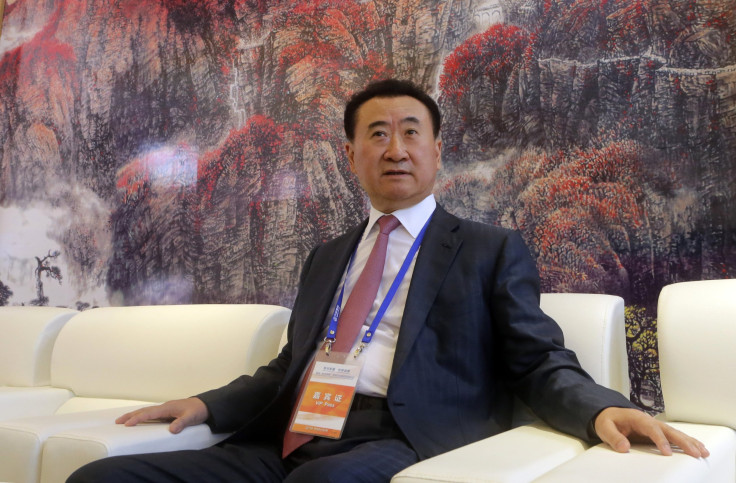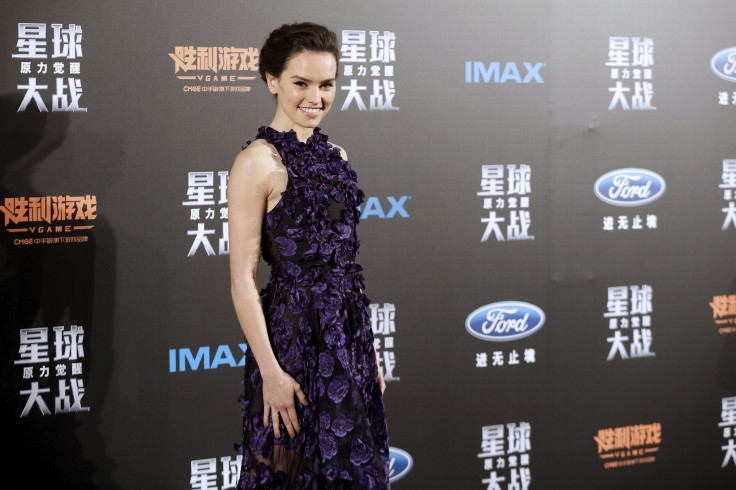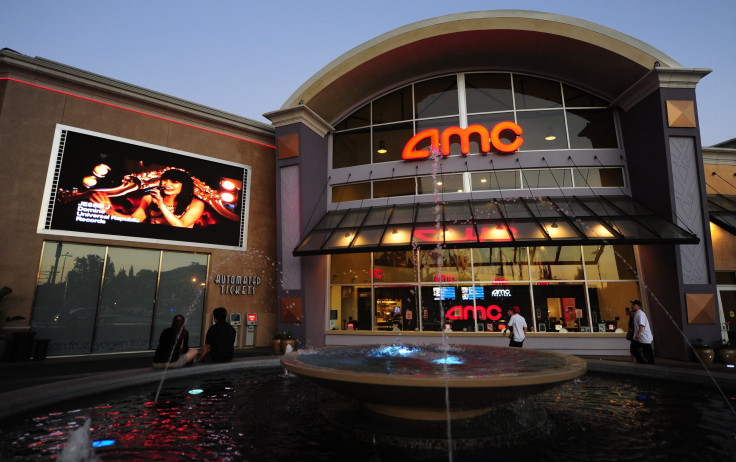Wang Jianlin, China’s Richest Man, Buys Hollywood Studio Legendary Entertainment For $3.5B In China’s ‘Biggest Cultural Investment’

SHANGHAI — Dalian Wanda group, owned by China’s richest man, property tycoon Wang Jianlin, has confirmed that it is buying a controlling stake in the Hollywood film studio Legendary Entertainment for a sum of around $3.5 billion.
It’s another major step in Wanda’s plan to build a global leisure business — it already owns AMC Theaters in the U.S., Swiss sports marketing company Infront Sports and Media, and a stake in Spanish soccer club Atletico Madrid. And it’s also being seen as the largest ever international cultural investment by a Chinese company — at a time when the Chinese government is keen to promote the nation's cultural influence worldwide.
Wang, who announced the deal at a news conference in Beijing, said it would help Legendary, Hollywood’s biggest independent studio and maker of the "Batman" franchise and "Inception," among others, to “increase its market opportunities, especially in the fast-growing China market.” China has seen a rapid growth in its movie box office, which is now the second-largest behind the U.S., with some $6.8 billion in takings last year, according to official figures. "Star Wars: The Force Awakens," for example, took $53 million in its first weekend in China, despite the series being relatively unknown in the country.

And despite a slowdown in China’s overall economic growth over the past two years, some industry experts say the movie market will continue to grow, as companies like Wanda build more multiplexes, and China's box office could overtake the U.S. as soon as 2018. Last year, the number of movie screens in China increased by more than 8,000, a rise of some 30 percent, while ticket sales were up around 50 percent.
But the deal may also reopen debate about whether China’s growing influence in Hollywood could lead to growing self-censorship, particularly of movies targeting Chinese audiences — since movies released in China need official approval and are subjected to relatively strict censorship.
For Wang, the move appears to be part of a strategy to parlay his real estate wealth into a cultural legacy amid slowing growth in China’s formerly red-hot real estate industry, according to analysts. The 62-year-old made his fortune in his native north-east China in the country's real estate boom of the past two decades, before expanding nationally.
His company has already built 100 of its Wanda Plaza shopping malls and office compounds around the country, most equipped with state of the art multiplexes, and plans another 900 in the next decade. Wanda also sponsored one of China’s top soccer clubs, is currently building the world’s biggest studio and movie theme park, and has announced plans to build a number of other theme parks around China. And in 2012 it bought AMC, the second-biggest movie theater chain in the U.S., for $2.6 billion.

Legendary Entertainment, founded by Thomas Tull in 2000, also has strong links with China — its Legendary East arm is currently making "The Great Wall," a sci-fi epic starring Matt Damon, Willem Dafoe, Andy Lau and a host of Chinese stars, in cooperation with China Film Corporation. The film, directed by top Chinese director Zhang Yimou and due for release this year, is seen as an attempt to create the first Chinese-made global blockbuster. And Legendary’s "Jurassic World" was one of the biggest grossing movies in China last year, taking some $100 million in its first five days.
Wang said he planned to merge Wanda’s own movie production arm with Legendary and list the merged company on the stock market, though he did not give more details, according to Reuters.
The deal is the latest and the biggest in a string of Chinese tie-ups with Hollywood — Chinese movie studio Huayi Brothers has done a deal to co-produce 18 films in the U.S., while major Chinese internet players including Alibaba and LeTV have also invested in partnership and co-productions with Hollywood studios. The deal may help Legendary avoid the limits imposed by China’s annual quota of around 30 international movie releases each year, though this quota is due to be raised in the next two years.
But the move may also arouse some doubts. A number of critics have already accused Hollywood of pandering to China’s powerful censors in their desire to gain a foothold in the lucrative Chinese market. One Hollywood movie, the 2012 remake of Cold War epic "Red Dawn," was reportedly re-edited to make its villains North Koreans rather than Chinese, in order not to offend China. And Brad Pitt’s "World War Z" is reported to have deleted a line that reflected badly on China -- but still failed to get a Chinese release. Even Chinese legislators have criticized the country’s film censorship system as too heavy-handed.
Ying Zhu, a specialist on Chinese film and TV at the City University of New York, said in a discussion with journalists on the sidelines of the Shanghai International Film Festival last year that China's growing influence over the global movie market effectively "allows Chinese policymakers to be the international film police now. Whatever big Hollywood studios make in future will have to take opportunities in China into consideration," she said.
© Copyright IBTimes 2025. All rights reserved.






















